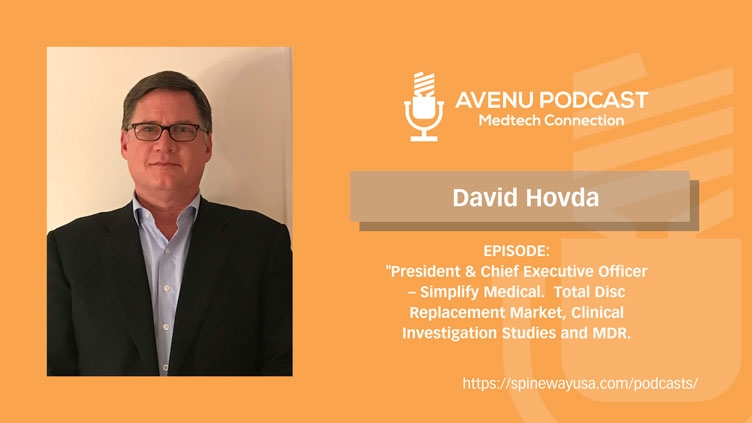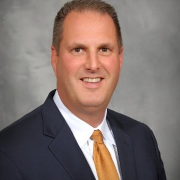“There’s certainly a lot of interest in robotics within spine and orthopedics, certainly on total knee replacement. Robots have been a big advance, I think, in total joint replacement. They’re also gaining a lot of interest in spine, primarily, initially, for pedicle screw placement. I think there’s some interesting things you can do in terms of precision cutting and placement going forward. So, I think that’s a trend that’s here to stay. I also believe there’s a huge interest in moving procedures out of hospitals into ambulatory surgery center or hospital outpatient settings …I think there’s a big effort to move into the lower-cost sites of service. And then I say maybe a third aspect would be more patient-specific implants or trying to get closer to a patient-specific implant.”
David describes how big the global Total Disc Replacement Market is and shares his insights into what trends he is observing in healthcare and orthopedic innovation. David shares the monetary challenges of Clinical Investigation Studies and explains there is going to be an increased focus on getting more data, proving that your device works, and its cost-effectiveness. He explains the challenges emerging companies are having in gaining market access with GPOs and formulary pricing trends.
He examines the new MDR requirements and the struggles some companies will have due to lacking clinical evaluation information and that the once European-first strategy will cease. He suggests payers are using their ability to withhold reimbursement to compel companies to bring forward the clinical data proving the procedure is effective.
“The fact that we live in a class three world and we’ve done clinical trials and we’ve had a design control system in place, and a strong quality system that’s really where MDR is headed and that’s what we’ve been all along. …. I think that the bigger challenge is just all the puts and takes and how it’s going to be implemented. …So for companies that don’t have the clinical wherewithal or don’t have the clinical data available to meet the MDR requirements, we see some of those products ultimately going away. The other thing that was an interesting challenge, here recently, is notified bodies and with the pending Brexit. We have Brexit. What would happen if your notified body was based in the UK and Brexit occurred and now you can’t get your products, you know on the continent …but I think a lot of companies, as I said, that
really haven’t had the clinical focus, are going to be challenged because you have to have a very robust clinical evaluation report to meet the MDR requirements.”
Listen using the embedded player on this page or click to listen on your favorite podcast app icons.
![]()
![]()
![]()
Today’s Podcast Topics:
- What is the latest in orthopedic innovation and healthcare trends?
- What financial expense should be avoided in developing a clinical investigation study?
- With intensifying public pressure to reduce spending, payers are increasingly using formulary tiering to help control and manage market access do you foresee this trend likely continuing?
- New EU Medical Device Regulation’s (MDR) transition begins in May what scenarios will likely unfold?
- What is the Future of Spine 2025?
- What advice would you provide to people who are entering the Med Tech industry?
Links and Resources Mentioned in this Podcast:
- David Hovda on LinkedIn
- Website: www.simplifymedical.com
- Email: dhovda@simplifymedical.com
Did you enjoy this episode? Click here to Leave a Review. Each review helps us grow the Avenu Community and bring more guests to you! Thank you.
About the Host:
Connect with me directly on LinkedIn or subscribe to “Avenu Podcast” via our Website News Letter.




